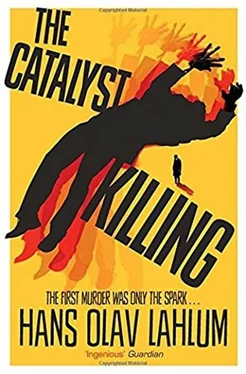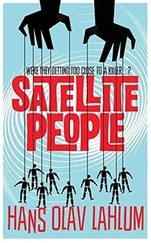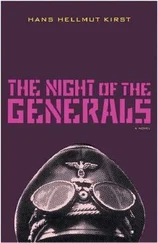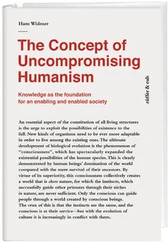I stared at Patricia, baffled, and asked how she could be so sure of that.
‘A theory that I have had more or less from the start. As I pointed out at an early stage, Marie Morgenstierne was walking extremely slowly and apparently happily towards the station, even though she was wearing a watch and knew that she would not make the next train. She was secretly hoping to bump into someone. And that someone was Anders Pettersen, who would have had the time to cycle round, precisely because she was walking so slowly. The fact that she said no to a lift from Trond Ibsen could of course have been a decoy, if she wanted to meet him in secret. But she also had to hand over the recording first. If it was Trond Ibsen she was going to meet, there would be no need to walk so slowly. As he had a car, he would have got there long before her anyway. This all fits with the other pieces that are gradually falling into place.’
I looked at her with admiration, and thought with a silent sigh that Danielsen might have the last laugh after all. But when I asked Patricia straight out if she thought that Anders Pettersen was Marie Morgenstierne’s murderer, she drew out her answer.
‘That is not what I said, nor, for that matter, my conclusion. As Falko said, there are two possibilities. And he no doubt thought that both were sad or tragic. The one decidedly sad alternative is that Falko’s best friend and admirer Anders Pettersen killed his fiancée, and thus also his own child. But there is still another alternative, which is no less sad or tragic…’
Patricia sat for a moment and stared gravely at something in the air in front of her. Then she drained her coffee cup and turned her focus back to me.
‘No matter how you look at it, there are a number of family tragedies here. The Morgenstierne daughter is murdered along with her unborn child, and the father is jailed for two other murders. Falko Reinhardt leaves behind him a broken-hearted lover and two depressed parents. Henry Alfred Lien was never forgiven by his son, although he longed and deserved to be. I can only imagine what the son will think when he hears the story.’
‘And, not to be forgotten, Miriam Filtvedt Bentsen is hovering between life and death. I wonder how her parents are feeling now,’ I added.
Patricia nodded, and promptly carried on.
‘So, let’s follow Marie Morgenstierne’s murder through to the end, no matter how sad the truth might prove to be. Go and see Anders Pettersen, tonight if you can, and confront him with the fact that he was Marie Morgenstierne’s lover and the father of her unborn child. Ask him if he knew about the child, and if so, how he found out. And ask him who else knew about his relationship with Marie Morgenstierne, and when they found out. Come back here afterwards: then I should hopefully be able to tell you whether it was Anders Pettersen, or the other possible murderer, who shot Marie Morgenstierne. You can come no matter how late it might be.’
I looked at the clock. It was already nearly half past ten. I said that I thought it was a bit late to start a new round with Anders Pettersen now, after such a long and demanding day. It would have to be first thing tomorrow morning.
Patricia nodded and said that that was understandable, but asked me to go as early as possible.
I sent her a questioning look. She squirmed uncomfortably in her wheelchair.
‘There is something else I would like to do tomorrow morning if possible, but your murder investigation is of course more important, so just come when it suits you.’
For a moment, curiosity got the better of me, and I was tempted to ask Patricia what else it was she had to do tomorrow. For a moment I wondered whether she perhaps had a boyfriend of one sort or another, and felt a stab of jealousy.
Patricia said nothing, however; and I was not in the mood to push her to talk about it. So I thanked her for her hospitality and promised to be there as early as possible the next day.
At twenty-five to eleven, I stood alone by my car in Erling Skjalgsson’s Street and admitted to myself that there was a reason I did not want to go to see Anders Pettersen this evening. I felt it was more important that I went somewhere else. And I did drive home, but I drove home via Ullevål Hospital.
I met Bernt Berg, the head surgeon, at eleven o’clock, as he was tearing across the hospital car park after his evening shift.
I said that I was glad to bump into him. To my surprise, he told me he had called me at home without getting an answer.
My heart was pounding as I asked if that meant there was good news. His answer was succinct: ‘No.’
I looked at him questioningly, and said that I hoped at least that the news was not too bad.
‘There has been a complication, and there is an acute danger of blood poisoning as a result. I have little hope that she will make it through the night.’
He said no more. It felt as though the earth was collapsing under my feet as I stood there, talking in a hushed voice to a middle-aged man in the darkness of the hospital car park.
I gave him a pleading look. He continued without me having to ask.
‘There is still a slim chance. She is physically fit, and mentally strong. But all the same, you should be prepared for the possibility that she might die tonight.’
I vaguely registered that an odd feeling of complicity had developed between me and this chronically calm man of few words. I now got the impression that the stony face and monotonous voice were a defence mechanism, and that behind this he was a passionate man with deep empathy for each of his patients.
I thanked him for all he had done, no matter how things might end. He said that regardless of the outcome, he would try to call me as soon as possible when he was due back at the hospital at nine the next morning.
Then we silently parted and went to our separate cars in the dark.
I drove home alone through the night, which even though it was summer, felt darker than I could ever remember.
Once back at my flat in Hegdehaugen, I ate two slices of bread and sat by myself in an armchair by the window. I suddenly felt overcome by sheer exhaustion, but could not sleep all the same. So I stayed there, looking out into the dark.
I barely gave a thought to Marie Morgenstierne’s murder. After my experiences today, I had more or less blind faith in Patricia’s assurances that it would be solved tomorrow. My thoughts were filled instead with Miriam Filtvedt Bentsen. Images of her from our first confusing meeting outside the party office, and my last glimpse of her lying in a coma in hospital crowded my mind.
It was past midnight, and only one light shone into the dark from a flat in the neighbouring building. In a strange way, this resolute, lone light came to symbolize my hope. I therefore jumped up when it suddenly went out at a quarter to one. I have never been superstitious, but when the light went out, my anxiety surged. I was almost paralysed by the idea that Miriam’s life had also gone out.
At half past one I finally managed to haul myself to bed, but was still far from being able to sleep. I initially set the alarm for half past seven, but then got up and changed it to eight, and then to ten to nine.
When I got back into bed, I realized I could not remember the last time I had cried, or why. Nor could I remember the last time I had prayed, or what for. But I cried and prayed desperately until I eventually fell asleep around half past three in the morning of Wednesday, 12 August 1970. It was the wounded Miriam for whom I cried and prayed. Three times I swore to God and to myself that I would race to her bedside with flowers, and a book, as soon as she regained consciousness – if she ever did.
With sleep, I was finally able to let go of the horrible images of Miriam lying motionless, and of her blood on the asphalt in Frogner Sqare – as well as the even more horrible feeling that it would be my fault if she died in the night.
Читать дальше












